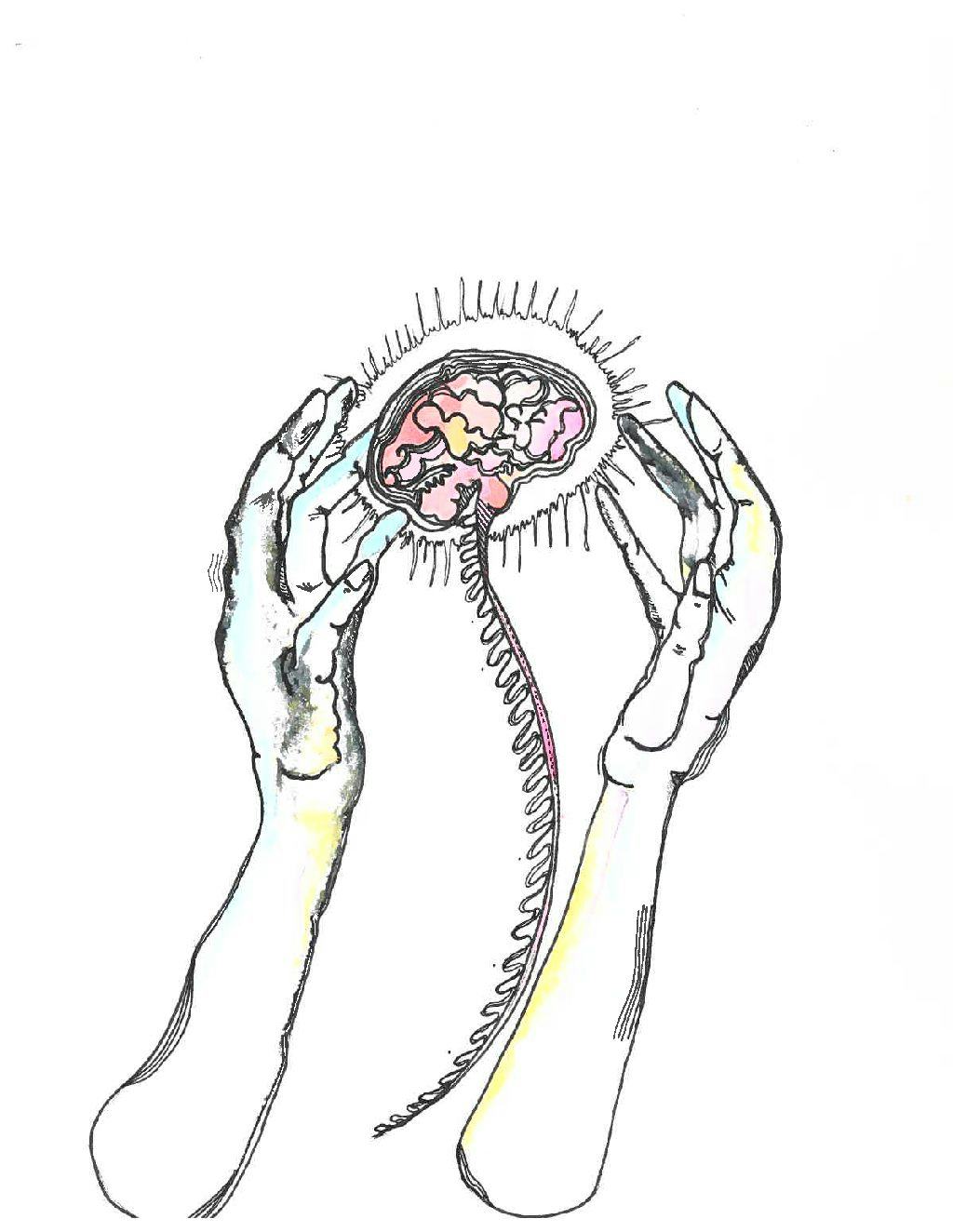Sure, Time Heals All Wounds, But It Doesn’t Work Alone

This essay has an associated podcast episode. Listen now.
Near the end of our work together, I mentioned to my therapist that I’d been feeling “weirdly okay” lately – for the first time since the betrayal that ended my engagement and propelled me into therapy, I was sleeping better, spiraling less, and even thinking of my ex in a more detached way, when I thought of him at all.
“You know I hate platitudes,” I said, my eyes rolling up into my forehead automatically, “but maybe the time thing is true? As irritating as it is…”
When fiancé and I broke up, while I was reeling from his infidelity and the end of our seven-year relationship, I had a raging, indignant reaction to the platitudes my well-meaning friends and family kept offering me. How could there be a silver lining to this intense pain, and more importantly why was it so important to people who professed to care about me that I find some positive note in my own personal hell?
But “time heals all wounds” was doubly frustrating because I couldn’t make time go any faster – I was stuck in my trauma for the foreseeable future – and there was no guarantee of how long time would take to fix what I was going through. It was enough to make me give up on life, which I considered often.
Six years later, though, I was reconsidering “time heals all wounds.” After all, I had healed, at least mostly – sure, I still felt raw sometimes and I wasn’t sure I’d ever be completely untangled from my past, but my day-to-day life and my new marriage had almost nothing to do with my ex or the heartbreak he caused.
My therapist looked at me, her brown eyes steady on mine through the screen of my laptop. We’d been doing telehealth since I moved to another state, and now even that was going to have to end due to licensing issues.
“Anne, I think you’re not giving yourself enough credit.”
“Shocker,” I scoffed, but then I fell silent and let her continue.
“It’s true that time is an important element of healing, but what you choose to do with that time is equally important. You’ve spent the past six years working to understand and untangle not just what happened with your relationship, but the deeper workings of your own mind, the way you relate to the world and the people in your life. That’s incredibly valuable.”
My therapist didn’t offer opinions often – she was more likely to ask guiding questions and hold space for me to work out the tangles in my brain out loud – but when she did, they were always like this. Deeply resonant truths that cut through all my defenses and self-invalidations and radiated through my bones.
All I could do was nod, maybe let out a thoughtful and inarticulate “huh.”
Now, two years after our last session, I think about what she said all the time. When I first started seeing her, I was in shards, each piece of my shattered self, slicing and poking the others with every intake of breath. I couldn’t comprehend how it would be useful to sit in this office for 45 minutes every Tuesday and try to explain to this stranger all the complexities of the seven-year relationship I’d just ended. But I didn’t know what else to do, and I worried about wearing out my friends with my broken-record obsession with my own trauma, so I went.
And pretty soon I was noting my thoughts and emotions throughout the week, “saving up” topics for my next therapy session, and feeling a little bit safer during my worst moments because I knew I’d have someone to talk to about them soon enough.
It took me a long time to heal from that breakup – some days I’m not even sure I’m finished, despite being happily married to someone else. But one thing is certain: any true healing I’ve managed is down to more than just time. It’s the result of effort and dedication, and it wouldn’t have been possible without therapy.
I’m certain that, for me, time would not have healed this wound on its own. Oh, sure, it would have scabbed it over, but the infection would have lingered below the surface. Wounds need proper care to heal, not just time. Anyone who’s ever read medical history can tell you that. Even now, people live with festering sores for decades because they’re incapable of accessing the care they need, and the same is true of emotional trauma. Time is a part of the equation, but it’s not the whole solution.
The healing happens when you’re willing to pull off the scab in a clinical environment, to (often painfully) clean out the wound, however many times it takes for scar tissue to build up. For me, weekly therapy sessions provided the safe space and guidance I needed to examine my own wound, painstakingly picking out the rot week by week, so that I would eventually heal over properly.
And by properly, I don’t always mean neatly. Scar tissue can be ugly – mine is ropey and twisted and lumpy, forever reminding me of what I went through – but it’s also strong. It keeps the vulnerable parts of me safe, even if it can be inflexible and tough.
Which is another reason to heal wounds carefully: the more care you take with the process, the more control you have over whether your scars take over and replace your vulnerability altogether. I don’t think I would have been able to trust and love my now-husband as openly as I do if I’d just let my wounds knot into untended scar tissue over time.
The process of therapy not only helped me heal the wound from my broken engagement, but also helped me go back and heal childhood wounds (or at least get started – I’m pretty sure that’s more of a lifelong process) and work on my own failings and connect with my core values in a way I’d never been able to do before.
So yes, time is a healer, but it shouldn’t work alone. What we do with our time matters. For me, therapy has been a large part of the healing process, and it’s also helped me incorporate healthier relationships and boundaries as orbital healers.
I have a new therapist now, one who lives in my state and who, coming on board when she did, helps me more with my marriage and family and career than she does with this old wound. But the wound continues to heal, with the guidance of my new therapist and the memory of what I learned from my first one. Every year, the balance shifts away from hot, tender infection in favor of strong scar tissue shifts, but I’m taking it slowly.
I’d rather get it right the first time, however long (and however much therapy) that takes.
Anne H Putnam lives in the Pacific Northwest with her husband and their cat and writes about body image, relationships, and anything else that requires an awkward amount of vulnerability. You can follow her on Twitter for politics and random musings or Instagram for cat pics and baked goods.
Discover more from Anne Putnam.








